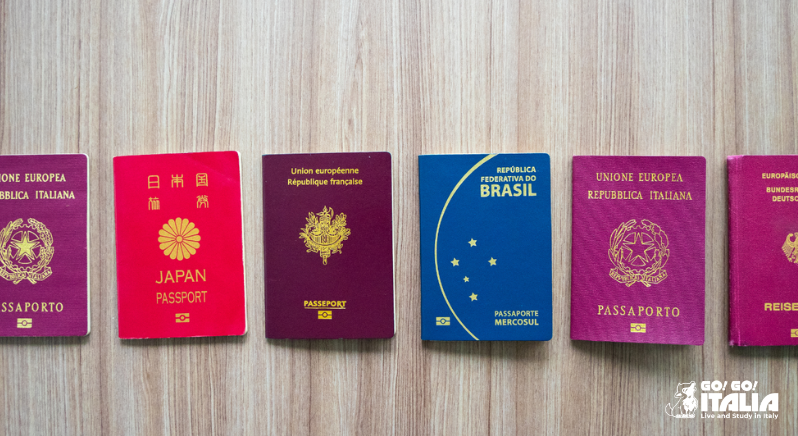If you are applying for Italian citizenship through naturalization or marriage, demonstrating proficiency in the Italian language is a mandatory requirement.
While language certification is not required for those applying through jure sanguinis (citizenship by descent), having a good command of Italian is highly recommended to support your integration into Italian society and fully enjoy your rights as a citizen.
Why is Italian language proficiency required?
The Italian government mandates language proficiency to ensure that new citizens can effectively communicate, participate in daily life, and understand legal and cultural norms. Proficiency in Italian is seen as a crucial factor in fostering social cohesion and successful integration into the country.

Who needs to meet the Italian language requirement?
Italian language proficiency is required for foreigners applying for citizenship through the following pathways:
- Citizenship by Naturalization: Foreigners who have legally resided in Italy for at least 10 years (or less for specific categories, such as refugees or EU citizens) and wish to become Italian citizens.
- Citizenship by Marriage: Foreign spouses of Italian citizens who apply for citizenship after at least two years of residence in Italy (three years if living abroad). This period is reduced to one year in Italy or 18 months abroad if the couple has children together.
- Citizenship by Birth (Jure Sanguinis): Individuals with Italian ancestry may be eligible to claim Italian citizenship by descent, without the need for language certification. However, if applying from within Italy, applicants may be required to prove basic Italian knowledge to complete administrative procedures, depending on the local municipality. While language proficiency is not a legal requirement for this pathway, having at least a basic command of Italian can be extremely helpful throughout the process.
What level of Italian is required?
Applicants must demonstrate proficiency in Italian at a B1 level according to the Common European Framework of Reference for Languages (CEFR) in case of citizenship by marriage or naturalization. This intermediate level ensures that individuals can:
- Understand and produce simple, coherent texts on familiar topics.
- Engage in conversations about daily activities and common situations.
- Express experiences, events, and opinions in a structured manner.
How to prove Italian language proficiency?
To meet this requirement, applicants must present an official B1-level Italian language certificate issued by one of the following accredited institutions:
- Università per Stranieri di Perugia (CELI)
- Università per Stranieri di Siena (CILS)
- Società Dante Alighieri (PLIDA)
Alternatively, individuals who have completed an educational qualification (such as middle school, high school, or university) in Italy are automatically considered proficient and are exempt from the language test.

Where can you take the Italian language test?
Language exams are administered at authorized testing centers in Italy and abroad, including Italian cultural institutes, universities, and accredited language schools.
All of our partner schools in Italy offer dedicated preparation courses for these exams and are also official examination centers. This means you can both prepare for and take the exam at the same location, ensuring a smooth and convenient process.

Exemptions from the language requirement
Some applicants may be exempt from providing proof of language proficiency, including:
- Individuals with disabilities that prevent them from learning a new language.
- Those who have completed formal education in Italy.
- Long-term residents who have already satisfied the language requirement for the EU Long-Term Residence Permit ( also known as Permesso di Soggiorno UE per soggiornanti di lungo periodo).
What happens if you fail the test?
If an applicant does not pass the B1 Italian exam, they will need to retake the test before submitting their citizenship application. To improve the chances of success, it is recommended to prepare in advance through language courses, self-study, and practice exams.
Final thoughts
With the 2025 changes to Italian citizenship laws, the process has become more selective, particularly for applicants claiming citizenship by descent.
Ensuring a strong connection to Italy and meeting the language proficiency requirement are now crucial factors in obtaining citizenship. If you are planning to apply, it is essential to stay informed, prepare for the B1 language test, and gather all necessary documents before submitting your application.
If you’re seeking legal advice, we’d be happy to connect you with our trusted partner law firm. Just let us know, and we’ll share the details!
Planning to learn Italian in Italy or online? Contact us!



